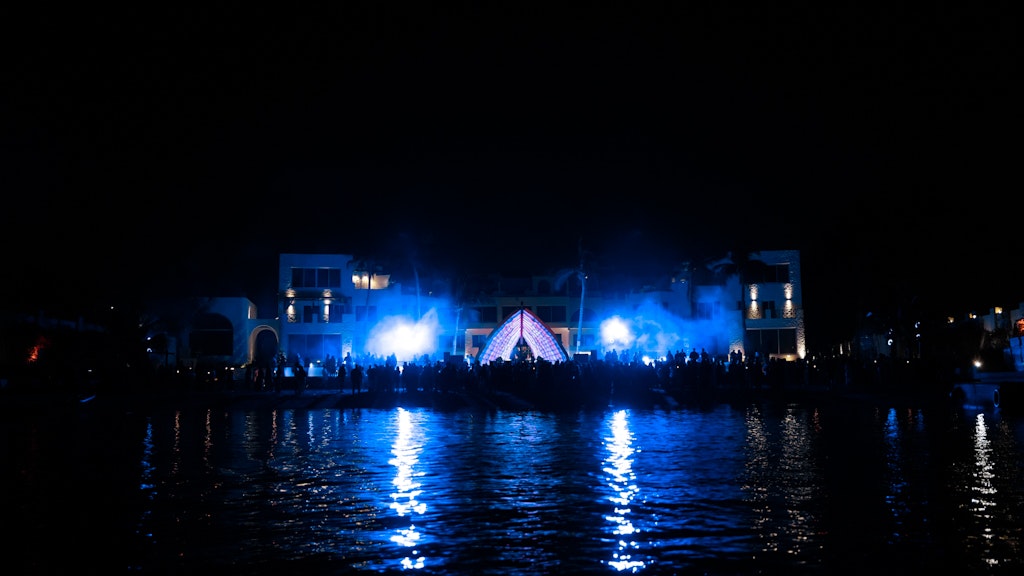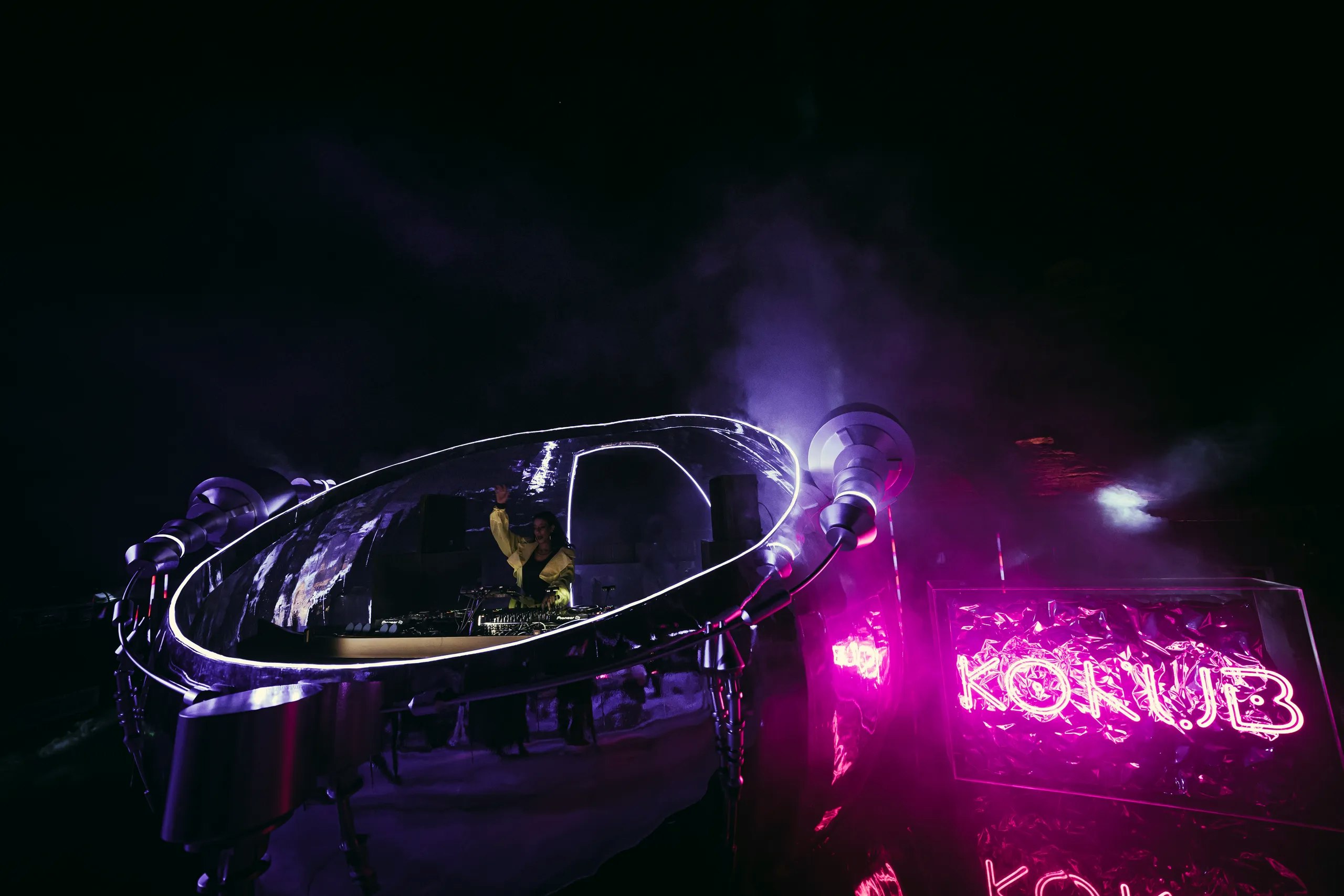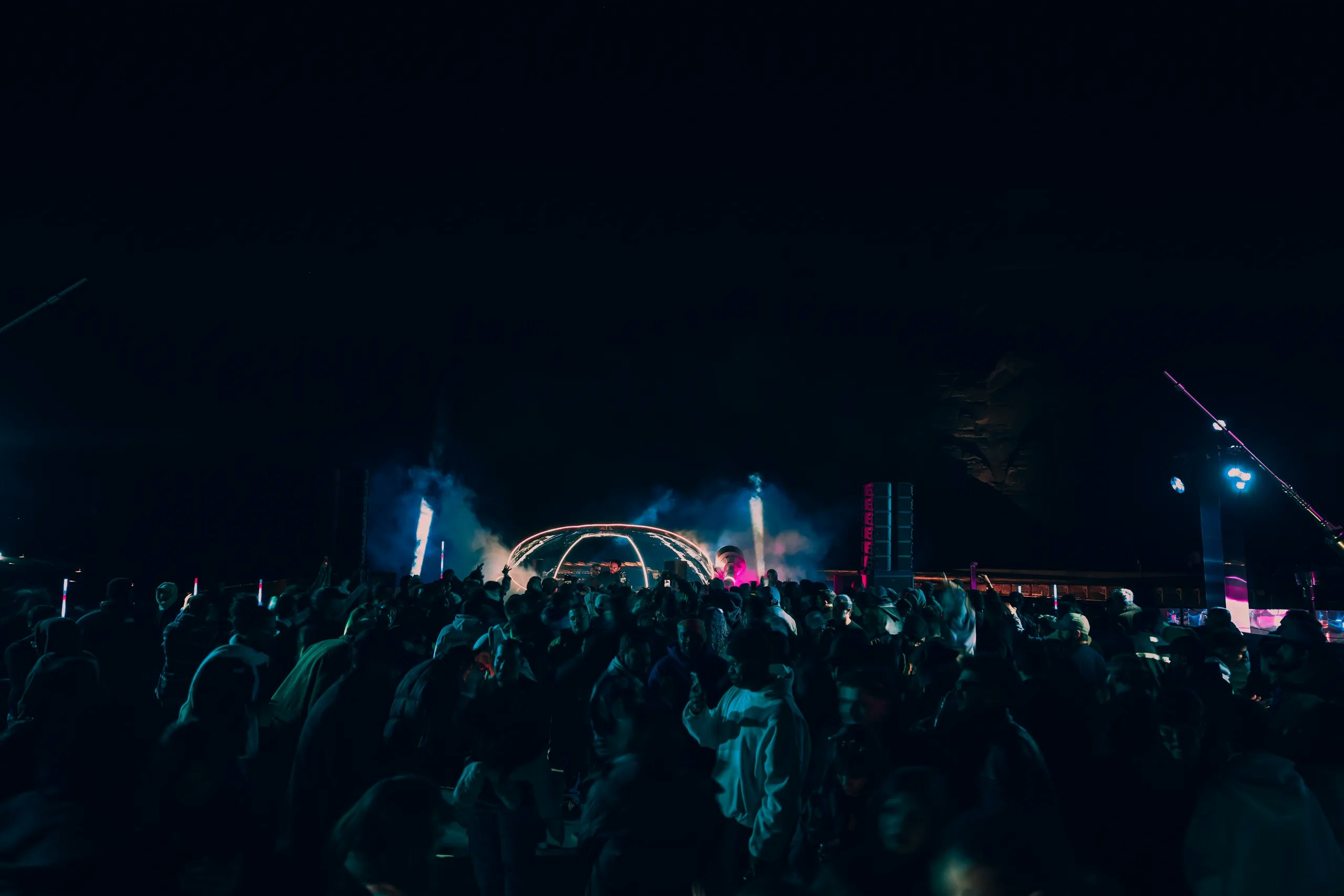

Origin of Music: The Dawn of Melodies and Rhythms
By MDLBEAST
October 29 2023
Origin of Music: The Dawn of Melodies and Rhythms
By MDLBEAST
October 29 2023
Music has been an integral part of humanity since ancient times, connecting people across the world through its vast history. We’ve spoken about the origin of music in the Middle East previously, but now we’re delving even further into the past to explore the development of this extensive art form.
Plus, we’ll discuss the growing importance of music education, highlighting a progressive initiative in Saudi Arabia that empowers kindergarten teachers with musical training.
The Ancient Beginnings of Music
The origins of music date back to the time of our ancestors, and its history is a complex fabric that spans millennia. To start, clapping hands and stamping feet likely provided early humans with a way to express themselves through music by creating simple, rhythmic beats. Music, like society, evolved over time, becoming more sophisticated as a result.
Various ancient civilizations like the Sumerians, Egyptians, and Greeks incorporated it into religious ceremonies, daily life, and entertainment before fully understanding its significance. For instance, the ancient Greeks had the belief that music could heal and transform the soul, a phenomenon that is still widely accepted and researched today.
Although musical traditions and practices differ around the world, we can identify the key eras that informed and influenced musical styles and the broader culture, including art, fashion, and architecture.
Music in the Middle Ages and Renaissance (500 - 1600 AC)
Moving onto the Middle Ages, troubadours—medieval poets and singers from the south of France—brought a touch of romance with their songs about love and chivalry. As they added variety to the soundscape of the time, vocal music became increasingly popular. Gregorian chants, characterized by their monophonic (having a single melody, without any harmonies) and meditative nature, were often performed in cathedrals, where they filled the space with ethereal beauty.
Alongside a boom of knowledge, a newfound appreciation for music also emerged during the Renaissance. The shift toward more complex harmonies and structures can be heard in the polyphonic works of composers like Josquin des Prez and Palestrina, who had a profound influence on the music of 16th-century Europe. The printing press was also crucial in spreading musical knowledge, allowing music to reach wider audiences.
The Baroque and Classical Periods (1600 - 1820 AC)
During the Baroque period, music saw elaborate ornamentation and emotional depth thanks to composers like Bach and Handel. Opera's introduction and instrumental music's widespread development both helped broaden the range of musical expression; this set the stage for the next stage in music styles.
The music of the Classical era, however, was characterized by its balance, clarity, and formality. Composers like Mozart and Beethoven laid the groundwork for the evolution of the symphony and the sonata by placing an emphasis on melody and structure. Their contributions became the cornerstone of future musical innovations.
The Romantic Era and Beyond
The Romantic Era introduced a strong emphasis on emotionalism and individualism to musical composition. Beethoven, who marked the transition from the Classical to the Romantic Era, Tchaikovsky, and Chopin delved into the very origin of music, exploring its power to convey the full spectrum of human emotion. The symphony orchestra grew larger, and opera continued to flourish.
The 20th century witnessed a musical revolution, with composers like Igor Stravinsky and Arnold Schoenberg challenging conventional tonality and rhythm. Jazz, blues, rock, and electronic music emerged as influential genres, shaping the cultural landscape and reflecting changing times. The advent of technologies like vinyl records revolutionized music consumption. In recent times, with the rise of digital streaming, music has become more accessible than ever before, enabling emerging artists to exhibit their talent to the world. This accessibility, combined with the blending of traditional and modern sounds, has resulted in a global range of music that boasts unique sounds and creative visions.
The Contemporary Music Landscape
The current music landscape reflects the steady growth of innovation and experimentation, reshaping the boundaries of musical expression. Artists across genres are embracing new technologies to craft their own distinct sound.
Genres are not just merging, but evolving, giving rise to fresh hybrid sounds that address specific preferences and tastes. The digital age has made music production more accessible to the average person. It has also made global collaboration easier, resulting in an increase of cross-cultural collaborations and genre-defying compositions.
Concerts, festivals, and other shared musical experiences are more popular than ever. In a post-Covid world, there’s been a substantially increased need for socialization that’s pushed event sales greater than ever. MDLBEAST’s Soundstorm Festival brings together artists from all over the world to celebrate music, art, and innovation. Their lineup presents diverse (regional and global) artists that mirror the growing landscape of modern music.
The Importance of Music Education
Just as music has evolved, so has the need for music education. We’ve come to understand that music education has a profound impact on cognitive development, creativity, and emotional expression. Plus, it instills a deep appreciation for culture and heritage while promoting essential life skills such as discipline and teamwork.
Today, there is an increasing global acceptance of the importance of arts and music education, where there may not have once been. Countries worldwide recognize the benefits of including music in school curricula, fostering young talents, and preserving cultural heritage. Take, for example, Saudi Arabia, where 7,000 kindergarten teachers have enrolled to receive music training. This groundbreaking endeavor, led by the Kingdom’s Music Commission, reflects a commitment to providing the tools to detect and nurture musical talent from a young age. By equipping educators with musical knowledge and tools, this initiative empowers them to provide high-quality music education to the next generation.
From ancient rituals to contemporary initiatives that ensure the art of sound will continue to enrich our lives, the natural relationship between the human experience and sound remains. In an ever-changing world, this should serve as a reminder of our shared humanity and inspire us to create and harmonize.
Share this


